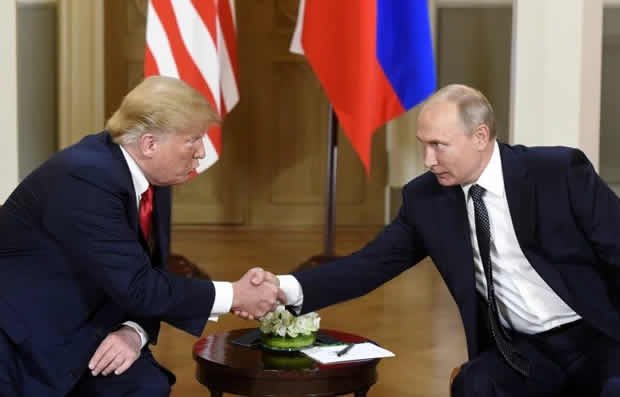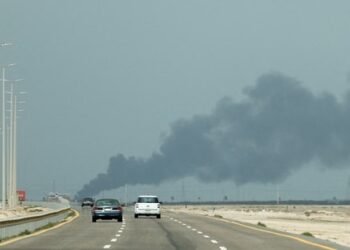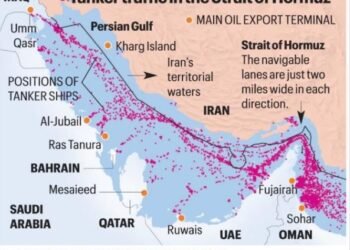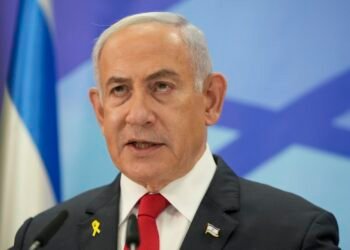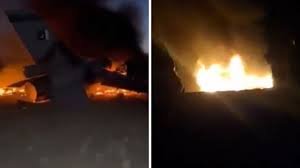Trump vows to “do Russia a favor” by urging peace, but warns of escalating consequences if the conflict persists
.BY PC Bureau
US President Donald Trump, having just assumed office for his second term, has made a bold and direct move in foreign policy, taking aim at Russia with a warning that could escalate tensions. On the heels of his inauguration, Trump sent a stark message to Russian President Vladimir Putin, urging him to bring an end to the war in Ukraine or face dire consequences.
Trump, who has long touted his ability to negotiate and manage international conflicts, stated that should the war continue, the US would impose “high levels of taxes, tariffs, and sanctions” on Russian exports to the United States and allied nations. He expressed a desire for peace, emphasizing that he was not seeking to harm Russia or its people but felt the need to act decisively to end the conflict. “I’m not looking to hurt Russia. I love the Russian people, and I always had a very good relationship with President Putin,” Trump remarked, attempting to remind the world of the historic cooperation between the two nations, especially during World War II.
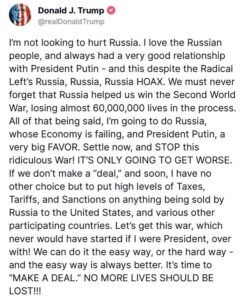
Trump also made a point of invoking history, noting Russia’s sacrifice during the Second World War, where nearly 60 million Russian lives were lost. He appealed to Putin’s sense of urgency, stressing that Russia’s economy was suffering, and that prolonging the war was detrimental to all involved. “I’m going to do Russia, whose economy is failing, and President Putin a very big favor – settle now, and stop this ridiculous war!” Trump said in his message. He further added, “We must never forget Russia helped us win the Second World War, losing almost 60,000,000 lives in the process.”
Despite his conciliatory tone, Trump made it clear that if Russia failed to act swiftly, the situation would only worsen. “It’s only going to get worse. If we don’t make a deal, and soon, I have no other choice but to put high levels of taxes, tariffs, and sanctions on anything being sold by Russia to the United States, and various other participating countries.” This direct approach contrasts with his earlier promises that the war would never have started under his leadership, maintaining his stance that the conflict is a result of poor decisions made by the Biden administration. “This war never would have happened if I were president,” he said.
ALSO READ: Trump’s Day 1: Sweeping orders: — Tok Saved, Climate junked
Trump’s message follows a week of rising tensions, with Russian officials warning of the growing risks to the US president. Nikolai Patrushev, one of Putin’s closest aides and a former security council chief, made chilling remarks suggesting that Trump might face assassination attempts. Known as “Putin’s brain” for his influence over the Russian president’s policy, Patrushev ominously warned that the fate of Ukraine would be sealed this year and that Trump could be targeted, citing the assassinations of four US presidents in office. He also urged US intelligence agencies to prioritize Trump’s safety.
The warning from Patrushev has sparked concern within the White House, and while Trump has yet to publicly respond to the threat, it underscores the precarious and high-stakes nature of his second term in office. As the US grapples with domestic challenges, including inflation and rising political divisions, Trump’s approach to foreign policy has the potential to significantly reshape international relations. The tension with Russia and the ongoing war in Ukraine are now central to his foreign policy agenda, and how he navigates this crisis could define his legacy in global diplomacy.
While Trump’s rhetoric is uncompromising, it’s evident that he is positioning himself as a strong leader who will not tolerate continued aggression on the global stage. The international community, especially European allies, will be watching closely to see how his administration handles Russia and whether his call for an end to the war is heeded or ignored. The coming months may prove pivotal not only for the future of Ukraine but for the broader geopolitical landscape, as Trump’s second term promises to be as contentious and unpredictable as his first.



